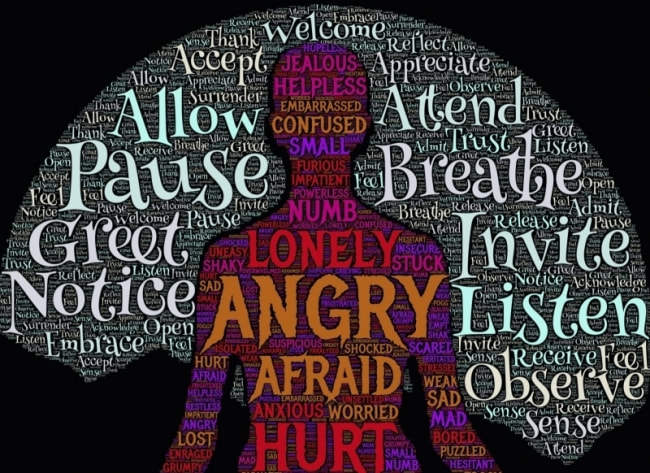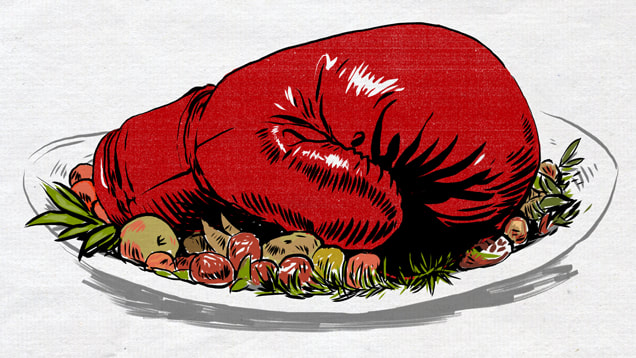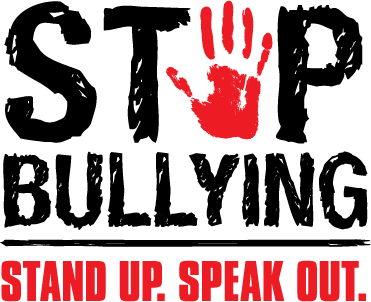|
If you, a friend, or a family member need access to mental health services in California, there is a good chance you will wind up on a waiting list. There is likely a 2-week minimum to 6-month wait to get an appointment with a mental health provider. According to the National Union of Healthcare Workers, and my experience as a licensed marriage family therapist (LMFT) operating a solo private practice in California, 87% of therapists report that weekly individual psychotherapy appointments are unavailable for patients who need it. This trend will likely worsen because of closet, shady insurance practices that force therapists to quit insurance networks.
The disparity between consumer demand for mental health services and provider availability had been brewing before the pandemic struck. A 2018 research report from the Healthforce Center at the University of California San Francisco predicted a shortage of behavioral health providers. The report cited that there would be 11% fewer psychologists, clinical social workers, marriage and family therapists, and licensed professional counselors than needed to meet service demand. This shortage of healthcare workers handicaps mental health consumers because psychological conditions can be as urgent as a physical health crisis. For people suffering from disorders such as anxiety and depression (or other mental health diseases), their condition may acutely worsen when they learn they cannot get an appointment for months. The longer they wait for an appointment, the greater the chance their condition will worsen. Psychological disorders can be caused or exacerbated by various factors, such as genetics, environmental stress, and socioeconomic conditions. When our body is wounded and diseased, visible physical symptoms occur. But what if the "wound" is in the brain? Something you can’t see. How does a person suffering from a mental health condition manage their symptoms when treatment is months away? What happens to them? Currently, demand for mental health services exceeds supply, as evidenced by the countless patients referred to me and my colleagues by hospitals, insurance companies, or community mental health agencies, which lack resources to manage the backlog. Many of my referrals are from insurance plans that do not have sufficient providers in their network. The shortage of behavioral health providers has occurred due to various factors, such as an increase in mental health illness during the COVID-19 pandemic, high turnover rates by mental health professionals at community agencies, and the de-stigmatization of mental health (thanks, in part, to Governor Newsom's PR efforts to raise awareness of mental health). However, it is the underbelly practices of insurance companies that have forced therapists/providers to terminate their contracts with insurance plans, leaving consumers scrambling to find new therapists or psychiatrists who will take their insurance. Like many of my colleagues, I have been part of this emerging exodus of mental health providers who have chosen to leave specific insurance networks because of unethical business practices, such as using impenetrable bureaucratic systems, passing the buck, abdicating responsibility, and nickel-chasing. Providers render mental health services and subsequently file claims to insurance companies for payment. Errors in claims caused by providers or insurance system failures can delay reimbursement. Even when a provider files an error-free claim, it can typically take 1-4 hours on the phone with an insurance representative to resolve an issue. But when a claim falls through the cracks, it can take months, not minutes, to correct. Claim problems take a long time to fix because it is virtually impossible to speak with someone at insurance companies who has the power to resolve grievances. Barbara Griswold, LMFT, and author of Navigating the Insurance Maze: The Therapist's Complete Guide to Working with Insurance, said in a recent workshop to therapists, "Good luck in trying to get a hold of someone who can help you." Insurance companies often have siloed data systems, requiring providers to be transferred to several departments because client health data is not shared uniformly within the company. These bureaucratic systems prohibit providers from getting a straight answer from customer service representatives who can only read a canned script. Escalating a call to an insurance company manager takes an Act of Congress because call center representatives are incentivized to manage provider inquiries, yet they have minimal authority to resolve complex issues. The institutionalized deferment tactics frustrate providers to the extent that they abandon their efforts to recover unpaid claims. I have walked away from significant revenue because the process was too painful to endure. The irony is that the bureaucratic system works perfectly - but not for the providers. Ching Ching. Chris Fussell, president of McChrystal Group, best explained the functionality of red tape when he said: "In any bureaucracy, there is a natural tendency to let the system become an excuse for inaction." The systems used by insurance companies continue to affect small private practices. For instance, if a mental health provider is supposed to be reimbursed $80.00 for a 1-hour therapy session, but it costs the provider two hours on the phone with the insurance company to resolve a claim problem that is not their fault, the therapist has lost the entire profit for the session. Scratch that, it is more like working in the red. Clients have less access to mental health services when providers are distracted with fighting insurance companies. I encountered such issues with Magellan Health and left the panel. However, Magellan is still informing clients that I am in their network after I terminated the contract in writing. I told my former client that she was misinformed. She had high hopes she would not have to start the process over with a new therapist. The United States Senate Committee has investigated this practice of ghost networks. According to an article by Psychiatric News, the American Psychiatric Association reported that Robert Trestman, Ph.D., M.D., told the Senate Committee on Finance in May that “ghost networks are false promises by insurers to provide access to care that shift the expense to the patient.” In a ghost network, insurance companies claim to have more credentialed in-network providers on their panel than they do. The alleged providers are listed in a directory published by the insurance companies. Trestman further explained “how for patients who are largely healthy and well educated, encountering inaccurate directories on insurance websites can be frustrating. But for people experiencing significant mental illness or substance use disorders, the process, at best, is demoralizing. At worst, it is a setup for clinical deterioration and a preventable crisis. Many are already experiencing profound feelings of worthlessness, grief from loss or trauma, and/or the impact of substance use… Some give up looking for care.” Read here about how such ghost panels are worsening the mental health crisis. My impetus for writing this article is to illuminate a real-time claims problem with Halcyon Insurance. I filed a clean claim with Halcyon. It was verified error-free. Halcyon has a 45-day window to pay the claim per contractual obligations. It’s been over 70 days. I am experiencing financial hardship because they are passing the buck. I spoke to Halcyon Customer Advocate Supervisor Eva Guizar who said, “We met our obligation to pay it out in 45 days and sent it out for processing." She said the claim was sent to third-party entities, Delta and Zelis for check processing. She indicated it was not Halcyon's responsibility anymore to ensure I was paid. She attempted to palm me off to these vendors. Guizar said she would give me the telephone numbers of these firms so I could track down my money. I think there is a name for this tactic: cross-delegating. It is the crafty art of having an obligation (like making good on your debts) but then skirting that responsibility by asking others to do the work. At that point, I had enough of the dodgy go-find-your-money shenanigans and was not about to search for my payments by navigating a labyrinth of third-party vendors. I told Guizar, “My contract is with Halcyon, not your vendors, Delta and Zelis." So I asked Guizar to follow up and track down my check. Two weeks later, nothing. Today, the mailbox was still empty. It appears that Halcyon needed my money more than I did. Silly me for having plans to pay the mortgage. I wondered how they would profit from holding onto my money. This conduct is an outright unethical, if not illegal, violation of our contract. How do we hold insurance companies accountable, when the fortress is impenetrable? If that was not bad enough, I also learned from Guizar that one of these payments was a credit card. There are fees associated with using credit cards. Now, Halcyon wanted to impose a fee on the money I earned, as withholding my check was not enough. Learning about the credit card fees was the last straw, and I almost became unhinged, realizing I would need therapy after the call. I asked Guizar why I had not been informed of this policy to be paid by credit card. Guizar responded, "Oh, I think they just do that automatically. I don't like it. I think you have to opt-out," she said. Well, I did not get the memo either! It is mind-boggling how far insurance companies will bend to nickel-and-dime therapists to inflate their profits. That is a nice chunk of change insurance companies will "earn" off the backs of America's mental health workers. Slick, with a capital S! My experience with Magellan and Halcyon is not representative of all insurance companies. I have had good working relationships with Cigna and Evernorth Behavioral, as well as other panels. The practices employed by these reputable insurance companies indicate that good models do exist. When insurance companies operate in bad faith, take no responsibility for honoring their obligations, and have total disregard for the financial strain their operations impose on small businesses, then therapists will continue to flee insurance panels due to hardships and shrinking profits — making it even harder for people suffering with mental health illnesses to access care.
1 Comment
Anxiety is a normal human emotion that we all experience during stressful or uncertain times. In moderate doses, anxiety can catalyze us into action and put us in a state of readiness to deal with difficult situations.
For instance, students preparing for a school exam may feel anxiety. This emotion can motivate them to study more, and thus they may be more prepared for the test. However, if anxiety is chronic, pervasive and severe, it can lead to mental health disorders with symptoms that include excessive nervousness, fear, apprehension, worry, and muscle tension. Left untreated, it can cause disability in people, affect their personal relationships and impair their ability to function at home, work or school. Given that the novel coronavirus infection, COVID-19, continues to threaten national public health as it spreads across the U.S., we may individually also experience a heightened sense of anxiety. For people already dealing with anxiety disorders, these unsettling times can worsen their mental health. To manage any emotion takes work, so the following article can be helpful in learning how to manage anxiety in the times of COVID-19. After you read the article, check in with Therapy Trek to let us know what you plan to do to ease tensions in your family.  While I was walking out the door of 2017, I ran into Hope. I bumped into Hope at the Walgreens in Bakersfield. It wasn’t the place that one usually expects to find Hope. Yet there he was, in the battery aisle, walking over to greet me with a big smile and warm embrace. I met “Hope” while serving as a therapist at a juvenile correctional facility in Kern County. Hope was then a teenage, minority boy found guilty by a judge of several felonies and sentenced to the center. Hope was like many of the other boys at the center — old souls born into a culture of broken homes, poverty, domestic/gang violence and drug or alcohol addiction that spanned up to four generations. The boys attempted to make the best out of the cards they were dealt, yet the almost daily life-and-death stressors they experienced pushed them on the other side of the law. The boys could hardly wait to be released from the center so they could prove to others that they could “make it on the outs.” They had fierce “I-will-show-them” attitudes. But the high rate of recidivism left them with a creditability problem. Some of the staff and counselors held out little promise for the boys. This meant that the boys were virtually on their own upon release. They alone had to carry the torch (of self discipline) to find their way out of the darkness. So when I ran into Hope at Walgreens, he was still carrying his torch. He beamed with pride, telling me he was enrolled at a 4-year university. I remembered working with Hope, who had been incarcerated multiple times and considered a “lost cause” by many at the center. A counselor advised him that it would be more appropriate for him to attend a community college, rather than set his sights on a university. Hope ignored this microaggression and followed his own path. Michelle Obama, the former first lady, experienced a similar situation, as reported by the Washington Post. Obama told a group of low-income students that while in high school she was considering attending Princeton University as her college of choice. Her counselors warned her that she was too ambitious. She was told ‘you will never get into a school like Princeton.’ The sting never left her: “I still hear that doubt ringing in my head,” Obama said. These life scenarios indicate that we still have a long way to go in reforming the cultures of our schools and juvenile justice system. When adults can’t see past their own faulty assumptions and preconceived notions about a youth’s innate abilities, then we risk crushing their dreams. How can youth be inspired to grow — let alone reform themselves — when cynical adults don’t believe that change is possible? Hope was an extraordinary teen. He showed a lot of resiliency and strength to pursue his dreams in the face of overwhelming adult pessimism. Yet not all kids at the center were like Hope. Most of the teens at the center were influenced by the counselors’ outlook. The boys’ sense of despair was only deepened by the counselors’ cynical outlook and lack of hope in the youth, contributing to the cycle of recidivism. Burn-out by mental health counselors is prevalent in community health organizations and continues to be a real barrier in youth getting services that are safe, effective and non-discriminatory. And this is the very ugly truth about the system. It can harm the very children it is trying to save. Youth need not carry the torch alone. We can brighten our own beacon of hope in 2018 if we promote meaningful reform that truly gives troubled youth a fighting chance. Share your thoughts below with me on ideas you have to reform the system. What has your experience been in working with adults in the system who have lost their ability to be effective in helping youth. How can we better help youth? Reprinted From Kern River Courier December 15, 2017Though the holidays are associated with joy and good tidings, they can also bring darkness. Feelings of sadness, loneliness and emptiness can resurface at this time. It’s very common for people to experience the holiday blues, so finding ways to manage our emotions can be helpful.
As a therapist, I often have to use the same techniques to manage my own emotions that I prescribed to my clients. This week I had to put these techniques to work after experiencing some tense moments at a family gathering in Los Angeles. A relative who was not invited to the event showed up, causing conflict, opening up deep wounds and dividing the family. The family conflict greatly upset me, so as I drove back home along the 395 freeway, I contemplated how I would manage my internal distress and deal with a fractured family. Incidentally, there is no better place to unpack existential angst than the drive up to Walker Pass. The desert can be quite comforting — a silent and desolate world where one can find the space to smooth out the jagged edges of life. As I drove past the rugged, purple Scodie mountains, and marveled at the spiny cholla cactus gracing the remote desert landscape, I explored what I could do to take care of myself. This momentary pause to consider self-care options often provides the vision needed to guide us out of distressful times. I decided it was essential for me to process what happened and feel my feelings (as ugly as they were). Negative emotions can transmute into negative energy if they are not expressed. In other words, bottled negative feelings and thoughts can contribute to disease and mental health conditions (which is why therapy is called the “talking cure”). I also recognized that it would not be helpful if I fixated on these negative thoughts and feelings. I had to find a balance between expressing my emotions in a healthy way, while not letting them consume me. I considered those actions that would offset my mood. I could engage in “Retail Therapy,” (not an optimal choice); watch marathon episodes of I Love Lucy; eat lots of chocolate (also not a healthy option), take a hike, etc. Most of these options did not appeal to me. I don’t feel like doing much when I am upset. Yet therein lies the work of self help — doing what is necessary to nurture our soul, regardless of how difficult it may be. I decided that when I got back home, I would do yoga, journal and run a few errands. These activities got me through a dark day, and sometimes that’s the best we could hope for. Managing emotions is daily work, and the more you practice at it, the better you get at it. When we get in front of our feelings —instead of stuck in them — we improve our ability to adapt to life’s curveballs. It appears our nation’s divisiveness has spread well beyond water-cooler banter and coffee-shop talk, encroaching upon the sanctity of our traditions— the holiday get together.
For many people in my generation, the holidays were once a time when family set aside their differences in the spirit of the season. We avoided discussing topics that could spark family feuds. It was the Zeitgeist of the Walton family. A time when the unspoken rule to leave your baggage at the door prevailed. Yet this tradition may now be waning due to increasing intra-family discord emanating from the political strife which has divided our nation. Regardless of political persuasion, many Americans feel compelled to voice their dissent -- be it on the streets at a protest rally or in grandma’s kitchen on Thanksgiving day. If you consider the family as a microcosm of society, then it’s understandable to see why the nation’s angst is spilling over into our homes. Family members with polarized socio-political views are squaring off. This has pitted in-laws against in-laws, cousins against cousins, brothers against sisters, and wives against husbands. As a therapist, I have seen families torn apart due to the political dissension. Americans are passionate about the future direction of our nation, so it’s not out of the realm of possibilities for family bickering to escalate into a scuffle. “What do you mean Trump is…,” as granny grabs the bird and slings it across the table. So what can you do to prevent a flying Mr. Butterball? What is the best tactic to use if you find yourself at a holiday party and a relative wants to incite a futile political debate? I asked around and got some suggestions. My cousin said to “try to win them over, prove your point with facts.” Call me crazy, but I think it is very difficult--if not impossible--to change a person’s beliefs at one dinner party. “Yeah, as I was saying about gun control--oh, can you pass the yams.” A friend of mine goes for the avoidance approach. “I can’t stop him from going on about his politics, but I can seat him at the kid’s table.” My dad goes for the change-the-subject tactic. When asked by his sister if he has heard the latest fake news, my dad responded: “Yeah, I watched TV. How about those Astros.” Whether you see the world through a lens of blue, red or somewhere in between, it’s helpful to remember that our political leanings are influenced by the values we have developed over a lifetime. People can and do change, but it is usually a process that takes time.  In this final article on bullying, I explore how advocacy can thwart bullying and explain how a business is doing just that. I have witnessed bullying take its toll on the psyche of our youth. The juveniles I have counseled would tell me how “low” they felt when being bullied. Yet I didn’t realize there are long-term health consequences associated with bullying, until I learned these facts:
Though the media have covered childhood peer bullying extensively, adult-on-youth bullying is equally harmful and may be underreported. Youth may heed the code of silence if the adult bully is in an authoritarian position and has the power to retaliate. Adults who care about youth have a responsibility to stop the abuse. Michigan State University has studied this problem and recommends these steps:
Sometimes the strongest advocates are people who have been bullied themselves, like Shannon Rapose, who works in Lake Isabella at The Pizza Factory owned by her family. Rapose was bullied in her youth by a group of classmates who incessantly taunted her and threw green, spiky tree pods in her hair. Rapose reported the incidents to her mother, who advocated on her daughter’s behalf and worked with school officials to stop the bullying. Paying this advocacy forward, Rapose channeled this experience into something positive, and subsequently established the Pizza Factory as a safe/no-bully zone — a place that welcomes all regardless of cultural affiliation, age, race or sexual orientation. Rapose recently painted a rainbow, no-bully sign on the window, yet it was defaced within one week. “I was surprised the sign lasted that long,” Rapose said. “There are always risks involved when you are promoting tolerance.” Despite these risks, Rapose continues to be an advocate. For instance, a group of men recently visited the restaurant, and a young waiter asked the group if they needed anything else from the kitchen. One of the men looked at the waiter’s rainbow wristband and snarled back, “no we don’t need anything from you [expletive].” The employee reported the incident a day later and Rapose responded by ordering rainbow bracelets for any employee who wanted to show their solidarity with the waiter. This action effectively showed the employee that harassment is not ok, and people will take a stand to prevent it. I wonder how such nurturing could change the lives of young people who are bullied. Would youth be less apt to develop mental health symptoms because they learned that the world is not all dark? Would it change their lives if they felt compassion during that moment of feeling low? Taking a stand on bullying is not always a Piz-za cake. Yet it may prevent youth from suffering long-term mental health problems associated with bullying. What is your experience in standing up for youth? What are there barriers that make it difficult to take a stand? Share your comments below. Note: This is the full article of a condensed version that was first published in the Kern River Courier. When I first became a therapist, I stayed in the traditional lane of my field, affecting change one session, one person at a time. This is the conventional route, and I may have indeed followed this path if I did not meet a new breed of counselor I call the "macro therapist."
Macro therapists extend their reach and impact by getting involved in community non-profits, raising awareness of mental health issues and serving as social justice advocates when clients are harmed by the very system designed to help them. I am proud to be in the company of these mental health leaders, as they have successfully demonstrated (and taught me) how to navigate the intersection of psychotherapy and social justice. These leaders continue to inspire me and work with me on creating ways to reflect what is truly happening in our mental health system so that change is not only created on a micro level with clients, but on a macro level with the larger society. Let me know your thoughts about therapists expanding their reach beyond traditional therapy. I am pleased to announce that I am writing for the Kern River Courier as a columnist.
The column and my blog will cover many facets of mental health, providing therapy insights and inspiration, educational information on disorders of the mind, as well as clinical perspectives and commentary. This week my blog focused on bullying, and you can get the full article here. There has been a lot of local interest in the Kern River Valley regarding this prevalent problem that has affected so many residents. One community leader tapped into this problem with her Facebook post, sparking intense dialogue that racked up more than 5k hits in a short period of time and oodles of emojis. After I read her post, I started exploring the depths of bullying in the KRV, and learned that it is often an intergenerational trait with deep roots in our community. I also learned that for every bully out there, there is someone trying to make a difference and inspire tolerance, consideration and respect for others. In my article, I reported on how one principal is taking the punch out of bullying by working to change the culture of his community. Click here to find out how this principal is leading an initiative that has proven to generate positive changes in students’ grades and behaviors. During my research, I met many upstanding citizens who are doing their part to curb this harmful behavior, so keep an eye out for my next Mental Health Matters article that provides a personal and up close view of the backlash that occurred when an ordinary citizen tried to stop bullying while promoting tolerance. Thanks for reading, and best of mind & body health to you.
Like the seasons that gradually transform the earth with the passage of time, human change can also plod along. It may be difficult to see that we are growing and moving forward when our life seems at a standstill. So if we are toiling away daily at doing better and being better to ourselves and loved ones -- and still come up short -- it's normal to question the purpose of our efforts. It's normal to feel stuck. Yet it is our actions of today, no matter how small, that will inch us toward a new season of hope.
Autumn does not happen overnight. It's a gradual process. Yet If we slow down just enough, we may be able to witness nature's transformation as the sun starts to wane, temperatures begin to dip and trees begin to paint themselves a hue of purples, oranges and browns. Likewise, the process of human change often occurs in thinly sliced moments. Change happens when we accept our losses, do the uncomfortable, face our fears, feel our feelings, challenge ourselves and recognize our strengths and limitations. Change happens when we transcend the moments we thought we couldn't. Ironically, these experiences of angst or despair can be the seeds that spawn new growth. For instance, I have witnessed how my clients have struggled with conditions of the mind and body that have negatively affected their relationships, work or school. In therapy, my clients work hard at overcoming what's holding them back. Bit by bit, moment by moment, life situation after life situation, they look within and find solutions to create a better tomorrow. Yet, sometimes they get stuck in therapy and repeat negative behaviors or think thoughts that are not helpful. At these moments, I contend they are still moving forward. We can't always see how what we do today affects tomorrow. The cultivation process happens beneath the surface, like a seedling that nudges, pokes and prods its way through dirt and gravel as it tries to sprout. Change is a germination process that entails struggle. Clients may ask me how long it will take before they or their family get better and see results. This is a difficult question to answer because everybody has unique skills, motivation, barriers and life events that can affect the course of treatment. But what I can say is that their transformation began before they walked through the doors of Therapy Trek. Something occurred to them or within them that motivated them to seek treatment. That in itself is change, a step toward creating a new normal. I think it's in our nature to persevere during difficult times. We have a natural ability to heal, change, recover and grow. And like all things of nature, the process can be steady and gradual. So when you hit a snag in the road, be mindful that your struggle may indeed be part of the journey to a brighter season. |
AuthorMarsinah Ramirez Buchan, Licensed Psychotherapist Categories
All
Archives
September 2023
|




 RSS Feed
RSS Feed